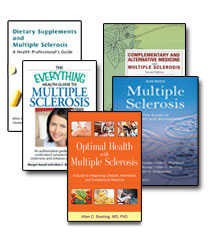Samuel Hahnemann, a German physician developed homeopathy in the 19th century. Homeopathy is a controversial type of complementary and alternative medicine (CAM). Many of the basic principles of homeopathy directly conflict with conventional understanding of chemistry, physics, biology, and medicine.
Despite these concerns, homeopathy is one of the most popular forms of CAM in the world. Currently, up to five billion dollars are spent annually on homeopathic treatment. $150 million of that total is from the US. Homeopathy is especially popular in Europe and India. In France, it is even possible to obtain homeopathic remedies from pharmacies.
Treatment Approach
Homeopathy has several founding principles. One of the most well known is the “law of similars,” commonly summarized as “like cures like.” Homeopathy holds that if large amounts of a certain substance create specific symptoms, then small amounts of the substance will cure that symptom. Therefore, if a substance like arsenic causes stomach cramps when given in high doses, very small doses of arsenic would be given to treat stomach cramps.
Another principle that is very important to homeopathy is the use of low doses. Substances are mixed with alcohol or water and diluted 1:10 (X) or 1:100 (C), and this process is repeated several times. In homeopathy, if a solution is referred to as 7X, this meand that a 1:10 dilution has been performed seven times. A 7C solution means a 1:100 dilution has been performed seven times. The end result of these procedures are extremely diluted solutions which may not contain even a single molecule of the original substance.
Homeopathy holds that water has a “memory” for the substance it once contained and that there is an increased potency with increased dilution. These are claims that conflict with conventional scientific knowledge, which have led some to believe homeopathy is simply a way to produce a placebo response.
Homeopathy aims to identify symptoms and individual features of the patient and use the body’s healing processes in treatment. Conventional medicine uses symptoms to diagnose underlying conditions and does not consider personal characteristics to be of primary concern when choosing a treatment path. Conventional treatments improve the disease process, but may not alter the body’s natural healing processes. Because of the emphasis that homeopathy puts on the individual, many homeopaths spend more time with their patients than do physicians. This allows for a stronger relationship between practitioner and patient, possibly augmenting any placebo effect.
Several homeopathic treatments are recommended for people with MS, depending on the individual and their symptoms. These include Plumbum metallicum, Aurum muriaticum, and Argentum nitricum.
Is Homeopathy Just a Placebo Effect?
As many homeopathic remedies do not contain active substances, some have suggested this field is largely based on the placebo effect. Placebos are usually between 30 and 40 percent effective. In situations where conventional medical options have been used with little beneficial effect, homeopathy may provide at least a means by which to induce a placebo response.
If homeopathy is purely placebo, Jeremy Swayne, a British homeopath suggests “it presents us with a rich and systematic study of the working of the placebo response, which fully deserves to be taken seriously and investigated. If it is not, then the implications are even more startling.”
Evaluation in MS and Other Conditions
Many clinical studies have been conducted concerning the efficacy of homeopathic therapy for a variety of conditions. However, much of the research has been poorly conducted, producing results that are often inconclusive.
Two recent studies have evaluated the pooled data from previous publications. One of these, published in 1991, suggested that about 75% of the research reports positive results. This study, however, was looking largely at lower quality studies. The other study, published in 1997, stated that no studies have clearly proved benefits from homeopathy for any condition, but also argued that the effects of homeopathy are not simply a placebo effect. Subsequent, more detailed evaluation of the same data found that positive results were associated with less rigorous studies.
In 2005, further work was published examining multiple homeopathic and conventional medicine clinical trials. Comparisons of high quality studies from both groups found that the homeopathic trials produced a substantially weaker effect. This is consistent with the idea that homeopathic treatment is a placebo.
No formal, large-scale, well-documented studies have been conducted evaluating MS-specific homeopathic treatment. There are, of course, isolated case reports and anecdotal evidence of people with MS benefiting from specific homeopathic remedies, but this cannot replace rigorous clinical trials.
Viral infections, such as the flu and the common cold, have been associated with MS attacks. Thus, prevention and lessening the duration of viral infection may be beneficial for people with MS. Some measures are available, including hand washing, limiting exposure to infected people, flu vaccinations, and some prescription drugs. Supplements are also used, but are unproven and their possible immune-stimulating activity poses a theoretical risk for people with MS. Some people consider homeopathy for treating viral syndromes, given the limited conventional options. Studies of this treatment course have produced mixed results. Homeopathy does not appear to prevent the flu, but might be beneficial in treating it.
If homeopathic treatment is considered, people need to remember that homeopathic treatments are not proven. Furthermore, available conventional medical therapies should be discussed with a physician before starting any treatment.
Adverse Effects
Homeopathy is generally well tolerated. Homeopathy should not be used instead of conventional treatment. Some substances used in treatment are toxic, but are generally diluted to the point where they do not cause problems.
Homeopaths advise patients of several precautions that need to be taken. Treatment should be stopped as soon as symptoms resolve, otherwise the therapy may lead to a recurrence. Antidotes, such as coffee, x-rays, acupuncture, and dental drilling, may interfere with treatment. Lastly, it is important for a homeopath to be aware of all conventional treatment a patient is using for it may affect homeopathic interpretation of symptoms.
Summary
Homeopathy is relatively low-risk, but has unproven effectiveness. No rigorous studies have thoroughly examined the effectiveness of homeopathic treatments for MS. It may be worth considering homeopathy for mild conditions, including mild MS symptoms and viral infection. Homeopathy could also be considered in a situation where conventional medicine is ineffective. It should not be used in lieu of conventional treatments, especially drugs used for controlling MS disease activity.
References and Additional Reading
Books
Bowling AC. Complementary and Alternative Medicine and Multiple Sclerosis. New York: Demos, 2007, pp. 150-155.
Chapman EH. Homeopathy. In: Weintraub MI, Micozzi MS, eds. Alternative and Complementary Treatments in Neurologic Illness. New York: Churchill Livingstone, 2001, pp. 51–67.
Ernst E, ed. The Desktop Guide to Complementary and Alternative Medicine: An Evidence-Based Approach. Edinburgh: Mosby. 2001, pp. 53–55.
Shinto L, Calabrese C. Naturopathic medicine in neurological disorders. In: Oken BS, ed. Complementary Therapies in Neurology. London: Parthenon Publishing, 2004, pp. 136–138.
Swayne J. Homeopathic Method: Implications for Clinical Practice and Medical Science. New York: Churchill Livingstone, 1998.
Journal Articles
Jonas WB, Kaptchuk TJ, Linde K. A critical overview of homeopathy. Annals Int Med 2003;138:393–399.
Kleijnen J, Knipschild P, ter Riet G. Clinical trials of homoeopathy. Br Med J 1991; 302:316–326.
Linde K, Clausius N, Ramirez G, et al. Are the clinical effects of homoeopathy placebo effects? A meta-analysis of placebo-controlled trials. Lancet 1997; 350:834–843.
Linde K, Scholz M, Ramirez G, et al. Impact of study quality on outcome in placebo-controlled trials of homeopathy. J Clin Epidemiol 1999;52:631–636.
Shang A, Huwiler-Muntener K, Nartey L, et al. Are the clinical effects of homeopathy placebo effects? Comparative study of placebo-controlled trials of homeopathy and allopathy. Lancet 2005;366:726–732.
Whitmarsh TE. Homeopathy in multiple sclerosis. Complement Ther Nurs Midwifery 2003;9:5–9.






